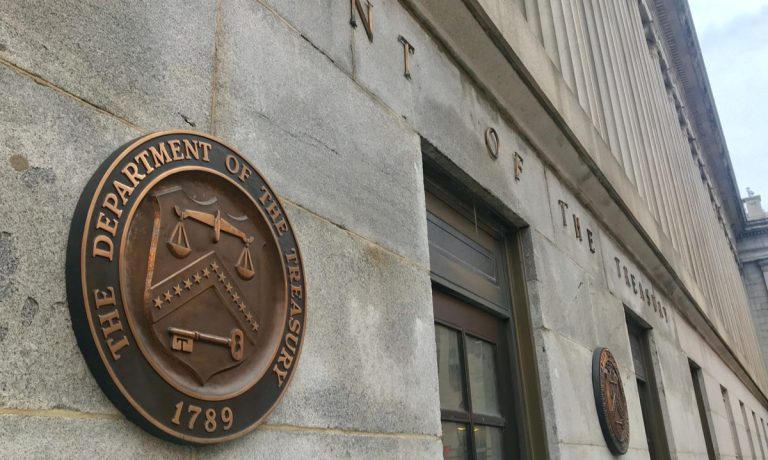Treasury Department Seeks Expanded Powers to Combat Illicit Finance

The Department of the Treasury is seeking expanded powers to combat the use of digital assets in illicit finance.
The department provided Congress with recommendations Tuesday (Nov. 28) to expand its authorities to go after illicit actors in the digital asset space, Deputy Treasury Secretary Wally Adeyemo said in prepared remarks Wednesday (Nov. 29) at the Blockchain Association’s Policy Summit.
First, the department called on Congress to create a secondary sanction regime that goes beyond barring a company from the U.S. financial system, according to the remarks. Under the regime, any firm that continues to do business with a sanctioned entity would also be cut off.
“This is a significant tool we do not request lightly,” Adeyemo said. “But we need to do everything in our power to make sure that groups like Hamas are not able to find safe haven within the digital asset ecosystem.”
Second, the Treasury Department aims to update its illicit finance authorities to match today’s challenges and close any gaps between current illicit finance risks and statutory definitions that were created decades ago, per the remarks.
“We cannot allow dollar-backed stablecoin providers outside the United States to have the privilege of using our currency without the responsibility of putting in place procedures to prevent terrorists from abusing their platform,” Adeyemo said. “And we cannot permit offshore financial services providers to use jurisdiction-evasion tactics to avoid complying with our laws.”
In addition to working with Congress, the department will collaborate with the Financial Action Task Force (FATF) to ensure that U.S. allies and partners around the world update their regulations as well, according to the remarks.
These efforts are the department’s greatest reforms since the 9/11 terrorist attacks, Adeyemo said.
“These reforms will not only help us curb illicit finances, but they will also level the playing field for the actors pursuing responsible and beneficial innovation and facilitate sustainable growth for the industry,” Adeyemo said.
It was reported in October that the attack on Israel by Hamas may have been funded in part by cryptocurrency. Despite being designated foreign terrorist organizations and subject to sanctions, Hamas and other groups have managed to collect donations and amass weaponry.